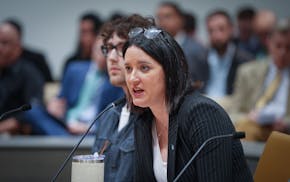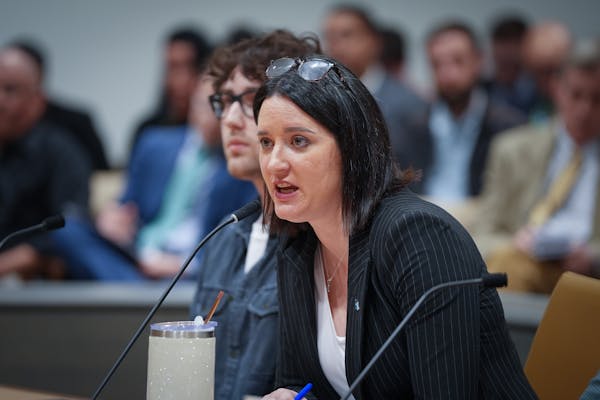CHICAGO - Some call them "the influentials," local Republican Party activists from around the nation whose help Gov. Tim Pawlenty will need if he runs for president.
More than 100 came to hear him talk Friday night in this city, some curious about a politician they described as intriguing because he's not yet well defined.
"I don't know that much about this governor but I've heard good things," said David Rouzer, a state senator from North Carolina.
Others in attendance noted that Pawlenty comes from a state that can be challenging for Republicans. "The home of Paul Wellstone," as Gregory Blankenship of Springfield, Ill., put it. "He has to have some political skill."
Peter Lund, a legislator from Michigan, said "it's good that there's a buzz" about Pawlenty. "Now the buzz has to be backed up by substance."
In delivering the keynote address at the GOPAC gathering, Pawlenty exploited a prime-time stage to better define himself to activists whose support could be critical in a presidential campaign.
He labeled President Obama "an extreme left liberal," and repeated accounts from other speeches about his blue collar roots. He deplored junk malpractice lawsuits for increasing the cost of health care -- drawing applause -- and criticized Democrats for not balancing budgets.
"Any time you can get before ... influential people within the Republican party, that's a good thing when you're a prospective candidate," said Annette Meeks, who runs the conservative Freedom Foundation think tank in Minnesota and served as a deputy chief of staff to former Congressman Newt Gingrich.
"At this stage in the game it's all relationship building," Meeks said, explaining that if Pawlenty runs, he'll need networks of supporters in every state.
"You come in contact with a lot of these folks at these types of events and those are the ones who you can eventually call and say, 'Hey, Bob, I met you at the GOPAC speech, would you be interested in putting together a meet-and-greet the next time I'm in Louisiana?'"
GOPAC bills itself as a kind of boot camp for up-and-coming party leaders, offering tips on raising money and grass-roots organizing for state and local races. As such, it provides a potential directory of activists that Pawlenty could find useful.
Pawlenty also appeared before a Republican gathering in San Diego earlier this month. It's too early to know how his appearances around the nation will play with party faithful.
A poll in New Hampshire, which holds the first primary of the 2012 election, showed him supported by only 2.7 percent of likely Republican voters. Former Massachusetts Gov. Mitt Romney was supported by just over 50 percent, and Former Arkansas Gov. Mike Huckabee, former Alaska Gov. Sarah Palin, and Gingrich also outpolled the Minnesota governor.
Still, Pawlenty has a chance, said Mitch Pearlstein, president of the Center of the American Experiment in Minneapolis.
"The simple fact [is] that people across the country -- journalists and others -- are talking about him, that he gets these invitations," Pearlstein said. He noted that there is a thin field of sitting GOP governors who might be contenders. Palin "is fading" and another one-time contender, Mark Sanford, has "shown up in Argentina in strange ways," Pearlstein said, referring to Sanford's affair with a Buenos Aires woman.
Pawlenty has held office for over six years and "without question appeals to a lot of fiscal conservatives and activists," Pearlstein said. "There's a certain buzz out there. Not an overwhelming buzz, but there is a sufficient buzz to make him a viable candidate."
After Pawlenty's speech, Lund, the legislator from Michigan, remarked, "A very good speech," adding it included plenty of substance.
Pat Doyle • 651-222-1210#

